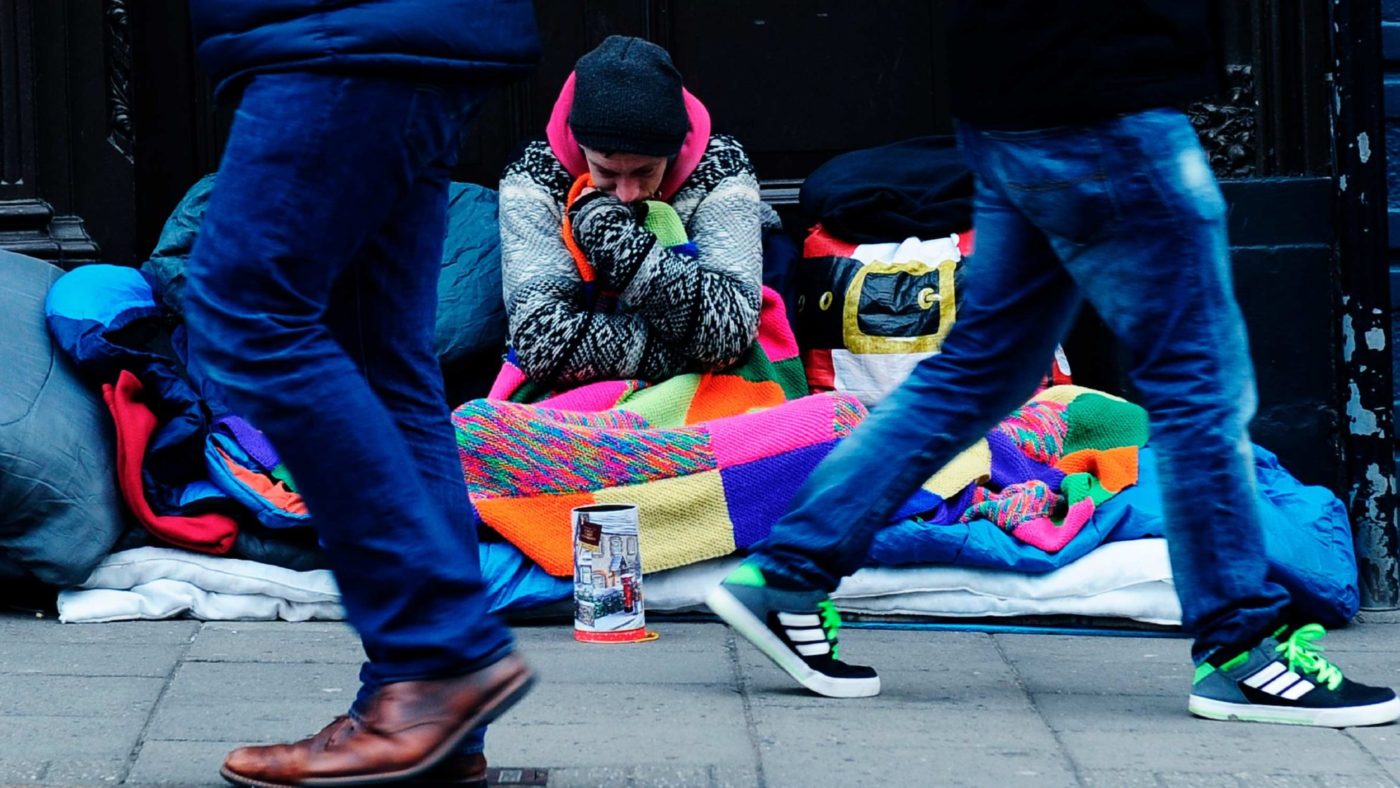Tucked away in yesterday’s strategy for tackling rough sleeping were details of a £28 million Housing First pilot in Greater Manchester, the West Midlands, and Liverpool.
Like most of the strategy it wasn’t new, the strategy “reaffirmed” a previous government announcement, but it’s a reminder of a welcome willingness to try a sensible strategy that is often overlooked.
Polly Neate, chief executive of charity Shelter, welcomed the new strategy as “a step forward and not a total fix” but added that the country still needed a plan “to build many more social homes”.
CapX readers will be well aware this country has a dire need for homes of all kinds, private and social, rented and bought, but Neate understands the key point: the home is the key factor in addressing the other causes of homelessness. And, thankfully, the strategy includes a commitment to “building affordable accommodation for those leaving hostels…and to support them in managing this accommodation”.
I used to work for a charity that ran – among other things – the county’s only 24/7 supported living service for homeless adults. We provided individual, self-contained flats for 22 adults with round the clock staff support, tenancy support courses, and integration with a range of substance abuse services, debt management organisations and so on.
All in all, it was exactly the kind of service the government wants more of. But getting accepted into one of these flats was no mean feat. Clients had to be referred to us by one of a small number of partner organisations, you had to already be known to and engaging with services, go through an interview process to assess your commitment to making changes to your life, be ready to commit to a minimum number of support hours as part of your licence agreement, abide by restrictions on visitors and overnight absences from the flat, and — crucially – abstain from using drugs on site.
We tried to be flexible, early plans were to have a pet ban as well but we successful negotiated with the local authority to allow dogs to live on site given we suspected many rough sleepers were likely to have one. But many of the other restrictions – while designed to make the service safe for staff and other tenants – did not reflect the reality of life for rough sleepers.
Estimates vary on how many rough sleepers use drugs but the homelessness charity Crisis acknowledges that drug use among the homeless population is high. Asking people reliant on illegal drugs to give them up before they can access safe and secure housing is simply asking them to lie about their use, making it even harder for them to access support.
With local authority funding increasingly squeezed, councils want to target these kinds of intensive interventions on to people most likely to benefit but that means those who aren’t ready to make the kind of changes reqired to move on from rough sleeping will find themselves locked out of support.
This is where Housing First comes in. Developed in the United States in the 1990s as a way to combat persistent homelessness, the idea is to offer housing without asking questions. It is an approach that recognised the reality that, for most people, housing is essential for people to begin to address their other issues, such as substance abuse or mental ill health.
Homeless people are given somewhere to live (paid for usually by the tenant, in the UK this would most likely be through housing benefit) and they would be offered support from a specialist worker, as well as access to a range of support services.
The housing is usually self-contained, thereby avoiding the pitfalls of hostels or communal living such as close proximity to drug users at differing stages of recovery and allows tenants to rebuild links with family, especially children, which can be difficult in a shared environment.
The model promotes choice, including the right to refuse support, with the aim to encourage people to actively participate in recovery rather than force them into it as a condition of having somewhere safe to live.
A longitudinal study of the programme in the US showed higher housing rentention for Housing First residents compared to treatment first (88 per cent to 47 per cent) and costs for Housing First programmes being significantly lower, $22,500 rather than $40-50,000.
Housing First would require a change in the way society treats homeless people. Many landlords – private and social – feel uneasy about renting their property to homeless people. But if the government incorporated Housing First principles in their rough sleeping strategy they could make significant long-term savings and put homeless people in control of their futures.
We also need to face the sad truth that homelessness can never be completely eradicated. We can improve access to rehabilitation and support services. We can put mental health on par with physical health within the NHS. We can build more homes to the point where price eventually comes down. We could fix some of the problems with Universal Credit. We could even reform drug laws to regulate ingredients and reduce harmful side effects.
But we can never eliminate entirely the many and varied ways someone can find themselves without a safe place to sleep. Promising to eliminate homelessness by 2027 – or any date – is setting ourselves up for failure.
That said, embracing Housing First policies is a major step towards putting homeless people back in control of their own futures without insisting they meet impossible goals first.


